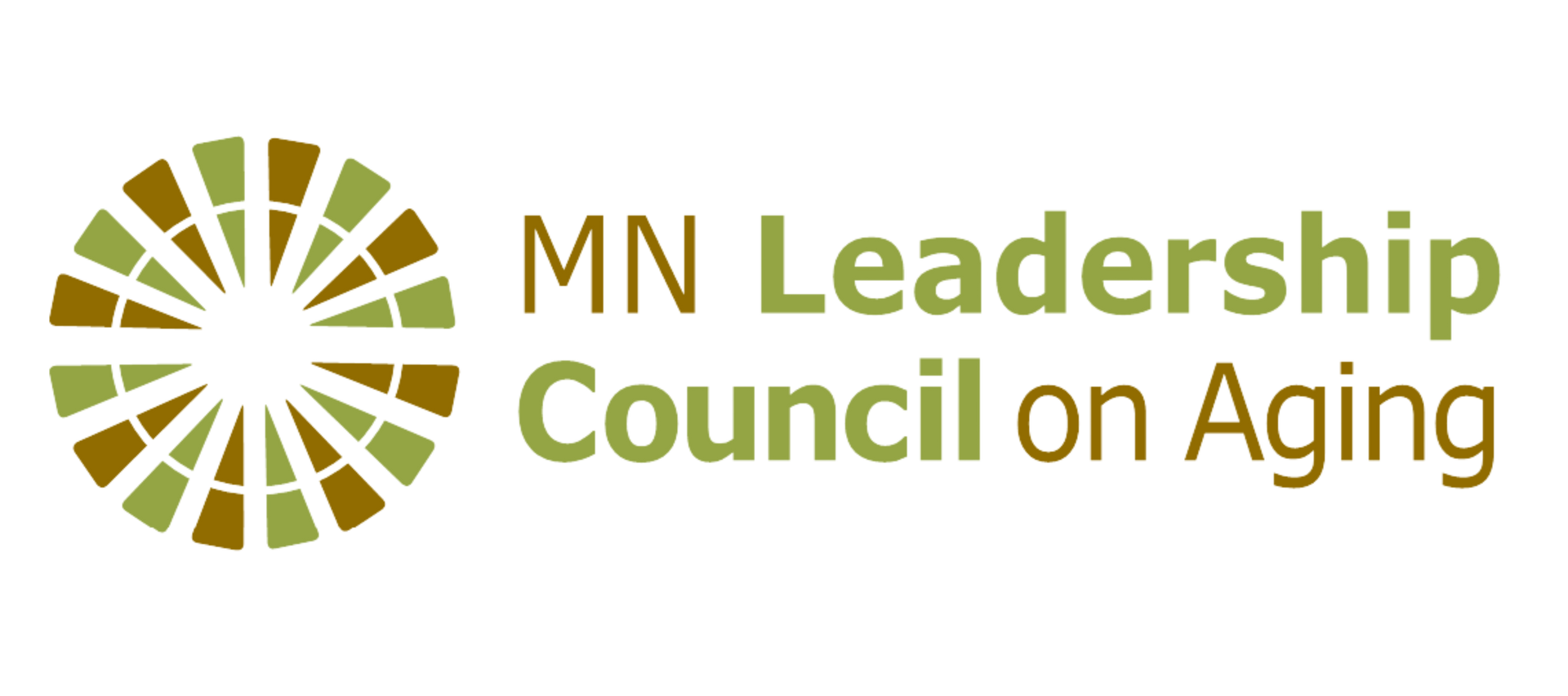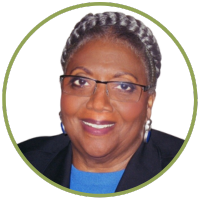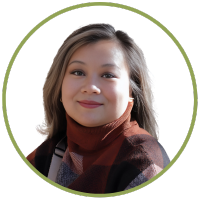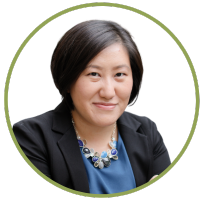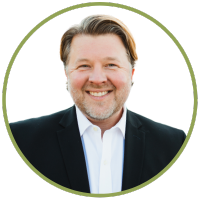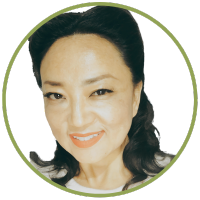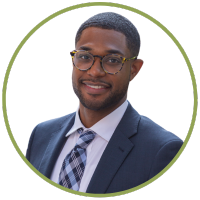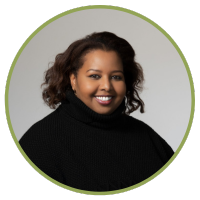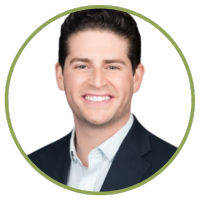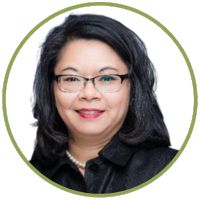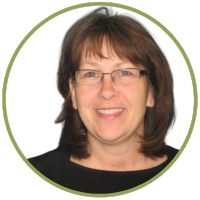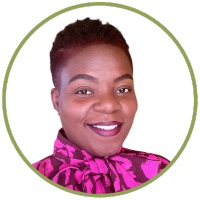CATALYST CONVERSATIONS
Changing aging at the crossroads of equity and workforce development
Welcome!
This free series of one-hour virtual discussions explores big questions about how we can improve equity in Minnesota's aging sector and spark your thinking about leadership opportunities to improve your organization's culture, competency, systems and workforce.
Audience
All leaders across Minnesota's aging sector are invited to join our MN Leadership Council on Aging Delegates, their staff and other brave guests we've invited to join these virtual sessions at no charge.
Questions
UPCOMING SESSION
March 11, 2025
10 - 11 a.m.
The second part of our series on trust: the challenge of our divided society — at work, home and in the community
Vivian Jenkins Nelsen is the owner of the Hypatia Group, Inc. where she is nationally recognized as a diversity practitioner, trainer, planner and researcher. Vivian also serves as faculty for the Center for Purposeful Leadership's Whole Person Leadership for Women program and speaks to thousands of people each year on leadership, change, and diversity. Whether consulting with CEO’s of Fortune 500 companies or serving organizations as a planner, facilitator, trainer or board member, she leverages a rich lifetime of experience. Vivian was co-founder of INTER-RACE, a diversity think tank located at Augsburg College in Minneapolis, has been a Bush Leadership Fellow, is the former Director of Administration at the Hubert Humphrey School of Public Affairs, and the author of eleven books. She regularly teaches and publishes on group facilitation, diversity, conflict, grief and has a strong interest in the aging sector.
She received her education from Dana College, the University of Minnesota, and Harvard’s Kennedy School and School of Education.
In this session, we'll explore how to repair and re-establish trust after it is broken. The session will delve into practical strategies for maintaining trust over time, emphasizing the importance of clear communication, ethical decision-making, and reliable actions.
In this first session on February 11, we explored the fundamental elements of trust and its role in building and sustaining meaningful relationships, starting with how trust is shaped individually and how it becomes defined. Participants learned how to apply these principles to establish trust within their teams and with external community, fostering stronger collaboration and organizational impact using Brené Brown's Anatomy of Trust framework to explore trust between racial and ethnic groups.
Check out this first conversation, then join us for the second part on March 11!
April 8, 2025
10 - 11 a.m.
Communication Strategies to Combat Bias
Foua-Choua Khang means "the weather" in Hmong. Her family has 30 plus years of residency in St. Paul’s Eastside. Foua is a proud wife and a mom to four boys. She has worked in and on behalf of the community for over 15 years. Foua is a strong believer in co-creating opportunities with the community to identify and find solutions to health disparities plaguing our wellness. She currently serves as the chair of the Cultural, Ethnic, Communities, and Leadership Council (CECLC) for DHS.
Khang received her MBA from the University of St. Thomas and her Bachelor’s degree from Metropolitan State University in community health and evaluation.
In this session, we'll explore practical communication strategies to address and combat bias in both personal and professional settings. Key techniques to be reviewed include active listening, asking open-ended questions, and fostering empathy to create an environment where diverse perspectives are valued. Foua will also discuss the power of language in minimizing stereotypes and promoting inclusivity. By the end of the session, attendees will gain actionable tools to communicate more consciously, challenge bias, and contribute to a more equitable space for all voices.
Our Approach
What can you expect as the standing agenda for each one-hour session?
Act I
Grounded by a set of group norms, we begin as a large group with a welcoming question and by inviting a guest expert to help us frame up a compelling discussion topic.
Act II
We leverage the experience of each leader in the room, inviting vulnerability and encouraging growth though small group discussions that explore a generative question or a case scenario.
Act III
Closing as a large group, we help clarify emerging questions, explore themes and ideas, as well as identify ways to implement key concepts or champion an equity lens to both our individual and shared work.
Group Norms
We collectively understand this is a learning experience and we seek to create a space that explores a diversity of experiences and perspectives. We commit to the following norms:
Sharing Content
- We will record only the brief presentations made by our guests with their permission; small and large group dialogue will not be shared.
Respecting Time
- We will start and end sessions on time, even if the discussion feels incomplete.
Stay Engaged
- We will all try to stay present and involved throughout the discussion.
Lean Into Discomfort
- We will accept that discomfort is going to happen and will be open to it, acknowledge it, and lean into it.
Speaking Our Truth
- We will commit to being open and honest, speaking our truth from our own positions, using “I” statements.
Step Up + Step Back
- We will step into the space to share ideas, encourage others to do the same, and resisting the urge to interrupt - realizing we may not get a chance to say everything we'd like to.
Expect and Accept Non-Closure
- We will hang out in uncertainty, recognizing the goal isn’t to finish the conversation by the end of our time together, but to start it for you.
We Always Ask...
Ongoing Growth
- What questions emerged from your discussion that you want to continue exploring?
Taking Action
- What from today can you share with your team or take back to your organization?
Hosts
Meet your team guiding the discussions
RECORDED SESSIONS
January 14, 2025
10 - 11 a.m.
How do we break the cycle to practice racial healing through the lens of socialization and liberation?
Bao Thao brings over 25 years of expertise in project management and diversity initiatives across corporate, non-profit, and healthcare sectors. Successfully building and sustaining partnerships to drive institutional diversity and inclusion strategies, she aligns business goals while reducing disparities, expands access, and supports people's professional growth. Thao's experience spans corporate branding, market research, operations, and organizational navigation, enabling her to influence and implement large-scale training, programs, and research projects. A skilled consultant and coach, she supports individuals and organizations in setting goals, developing strategies, and fostering inter-group dialogue.
Bao holds an MA in Educational Leadership from the University of St. Thomas, and a BA in Sociology/Anthropology and Asian Studies from Colgate University.
In this session, we explored how racial biases are formed through societal norms and systems as well as provided strategies for breaking these patterns through self-awareness, collective action, and accountability. Using a case study, participants analyzed real-world applications of the concepts to identify tangible steps that promote equity and foster racial healing in their personal and professional lives.
November 12, 2024
10 - 11 a.m.
How do you eliminate systematic oppression and encourage transformation?
Zachary Hylton is a practitioner and scholar in anti-oppressive organizational and institutional change. His work focuses on driving local ecosystems to realign and realize improvements in outcomes for their most marginalized communities. After nearly a decade of work across local government agencies and serving on numerous boards and committees advancing critical system change initiatives, Zachary started consulting with organizations around the world on large scale strategic change efforts.
Zachary is pursuing a PhD in Social Policy at Brandeis University and has Master’s degrees in policy and international development from Brandeis and The University of Minnesota's Humphrey School of Public Affairs.
In this session, we discussed how in today’s social systems, DEI has become normalized as a function that reinforces rather than challenges the bottom line. While we celebrate the progress made thus far, we explored how organizations can begin to understand widening inequality gaps and prepare to contribute to oppression elimination. This session discussed how organizations across the aging sector may venture into the next epoch of anti-oppression work and the practical considerations to get there.
September 17, 2024
10 - 11 a.m.
How do we practice trust-driven, human-centered systems change?
A first-generation Hmong American Woman, Yang has a proven commitment to the aging sector and a passion for the engagement of cultural communities to this statewide leadership role. She has a proven track record of empowering people through collective efforts and leading change through research, policy and programming. In her role, Chao leads the overall development and implementation of strategic projects for both the Leadership Council to champion diverse, equitable, and inclusive communities in which to age.
Yang
holds a BS in Human Resource Development/Business Marketing Education from the University of Minnesota - Twin Cities as well as a Master's in Public Health (MPH) from their Executive Public Health Administration and Policy program.
In this session, we discussed the inherent limitations of systems, which are often impersonal, cold, and static - making them poorly equipped to address the human and emotional needs that are crucial in advancing DEI work. To effectively engage and serve older adults, it is essential to humanize our systems by building trust. Trust enables collaborative discovery and leads to nuanced, comprehensive solutions. Together, we explored the critical step of reconcilitation in problem-solving practices.
May 28, 2024
10 - 11 a.m.
How might we apply intentional analysis to minimize disparities?
Deqa Sayid is an equity practitioner with over 15 years of experience serving diverse communities in various fields such as education, non-profit, health, and government.
Deqa’s expertise include strategic visioning, program assessment, creative solutions, and forming courageous learning spaces with a focus on reducing disparities and promoting a culture of inclusion.
Deqa holds a master’s degree in Education with a concentration in Multicultural Counseling and a bachelor’s degree in Psychology with a minor in Criminology, as well as a Mastery Certificate in Global Mental Health and Refugee Trauma from Harvard Medical School.
In this session, we explored the utilization of an equity toolkit in decision making to ensure a holistic inclusion of historically marginalized communities. We discussed and provided tools and frameworks to mitigate unintended disparities and promote equitable opportunities for all.
March 12, 2024
10 - 11 a.m.
How might we better-serve culturally diverse populations?
Andrew Savitz is a healthcare entrepreneur, nonprofit board member, and serves as the CEO of SpirituWell, a telehealth chaplain service providing spiritual care across the care continuum. He serves on the Board of Jewish Family and Children's Service of Minneapolis, the Community Health Committee of Neighborhood HealthSource, and the Diversity Advisory Council of the National Hospice and Palliative Care Organization.
Andrew began his career at the Minnesota Hospital Association and most recently served as a strategy and technology consultant to healthcare providers and insurance companies ranging from Fortune 500 companies to small community-based organizations. He holds a BS in Nutrition from the University of Minnesota.
In this session, we explored the research, barriers, and solutions to meeting a diversity of person-directed needs, including discussions about cultural, religious, and spiritual diversity across Minnesota.
November 14, 2023
10 - 11 a.m.
Why is building an inclusive economy critical for our competitiveness?
Ling Becker
Director of Workforce Solutions and
Executive Director, Ramsey County Workforce Innovation Board
Ling Becker leads a department of 80 staff in delivering $20 million annually in workforce services and programs in partnership with dozens of community-based organizations. Since the pandemic, she has also overseen millions in federal funding to help build a more equitable recovery.
Prior to this, Becker was the Executive Director of an economic development corporation serving the NE metro connecting businesses and local governments with school districts, community colleges, and employer partners in award-winning workforce partnerships
Becker holds a MA in Public Administration from Syracuse University where she was a Woodrow Wilson Fellow.
In this session, we explored how an economy of the future works for all, led by investments in our most critical assets - our people. Join us to discuss strategies and investments for building a more inclusive workforce across the aging sector. Our case study looked closer at skills-based hiring in the aging sector.
October 10, 2023
10 - 11 a.m.
How could wage transparency change the aging sector?
Anne M. Barry is widely respected for her work teaching, researching, and learning with the community at the intersections of racial justice, policy and practice. She is a passionate Minnesotan who builds partnerships across governmental systems to create change grounded in community leadership.
With more than three decades in cabinet level positions across state health, human services, and finance agencies, Barry's leadership also spans local government and higher education. She continuously seeks a government that is responsive and connected to a diversity of communities and tribal governments.
Barry has a JD from Mitchell Hamline School of Law, an MPH from the University of Minnesota and a BA in OT from St. Catherine University.
In this session, we explored how recently passed legislation in a number of states has placed a spotlight on wage transparency. Together, we discussed what it means to have wage transparency and other related practices important for leaders in the aging sector.
September 12, 2023
10 - 11 a.m.
What are our opportunities to improve diversity in the workforce?
Sonya Lewis is a Minneapolis native with over 15 years of experience spanning government and nonprofit settings. She specializes in workforce development, federal grants management, and project management.
Lewis is an experienced community facilitator, and a training and development consultant.
Her professional passions are integrating human-centered design of programs and services, and leveraging government resources to achieve equity and reduce disparities in historically marginalized communities.
Lewis is an M.Ed candidate in Human Resource Development at the University of Minnesota, where she has a BS in Business and Marketing Education and Human Resource Development.
In this session, we explored the meaningful steps that leaders in aging can take to diversify our organizations through 1) employer engagement efforts, 2) tapping into non-traditional talent pools, and 3) skills-based hiring practices.
About the Organization
Minnesota Leadership Council on Aging is a nonpartisan, statewide 501(c)3 coalition of 33 non-profit organizations in the field of aging. Our mission is to create communities and systems that support aging with dignity and a spirit of well-being in Minnesota.
Working together, our delegates champion:
- diverse, equitable and inclusive communities in which to age;
- a Minnesota free of ageism;
- coordinated Age-Friendly systems; and
- people who provide care for older Minnesotans.
We want to hear from you!
If you have ideas for future questions or guests that you'd like us to explore, submit a suggestion in the box below.
Questions
Minnesota Leadership Council on Aging
PO Box 4636, St. Paul, MN 55104
© 2025 Minnesota Leadership Council on Aging. All Rights Reserved.
